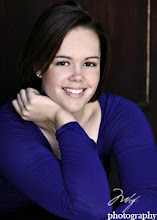We interrupt our "regularly" scheduled blogging to post a review of Megan McCafferty's new book "Perfect Fifths", in bookstores everywhere April 14.
The central relationship in Megan McCafferty’s New York Times-bestselling Jess Darling series has always been a bit like a crash. The forces that draw our snarky heroine Jess Darling and her former “poet-addict-manwhore” turned quasi-Buddhist turned Ivy leaguer love Marcus Flutie are strong at worst and jet-propelled at best. In the tantalizing final volume of the smart and savvy series that boast wide age appeal, the two literally crash into each other in the middle of an airport three years after Jess has turned down Marcus’ proposal of marriage.
If readers are wondering whether it’s over for Jessica and Marcus, here is a little of what Marcus has to say about their love in Perfect Fifths: “It is an alchemical attraction that transcends all reason, rationality, and – in three years since she spurned him – reality.”
Finally hearing from the inimitable Marcus Flutie is just one of the new tricks McCafferty has pulled out for readers, though it may be the most important. Reading from his perspective, all the questions I had about the pair from reading the diary-style entries written almost exclusively by Jess in the previous novels are answered. Is Marcus really as deep and important as Jess thinks he is? Does he love her as much as she loves him? Marcus finally gets more than a letter and some poetry to give us a feel for who he is without Jess as an incurably rose-colored lens.
The most delightful parts of the new book are the various “shticks” McCafferty employs to make this one different. It’s told in third person this time, and though I had feared it would dilute Jessica’s delightful wit and observation, the new point of view actually makes me more forgiving of Jess and keeps her from being too whiny, as her diaries seemed at times. The two much-discussed sections of the book that are very different from any books are the 80-plus pages of pure dialogue and the chapter of conversation written in haiku. When Ms. McCafferty was talking about the dialogue portion at the Tucson Festival of Books, my creative writing professor was in the audience, slowly shaking her head. She didn’t need to worry: this section is a pithy delight, giving the often tongue-tied Marcus and the sometimes babbling Jessica a balance we haven’t seen in the other books. The awkwardness of the conversation feels so authentic, I felt myself cringing even as I was smiling at the chemistry the two characters have even on the page. As McCafferty said in her talk at the Festival of Books, it is the things that are not said between the two, the things they almost say, that is most tantalizing and most telling.
Long-time readers will already know the importance of haiku in the series, and its importance in the final serial of this love is sweet and fitting. It’s often hard to write authentic flirting, and here the author does it within syllabic confines. The section has received much attention and anticipation, and rightly so: it is fun and funny, whip-smart and Smarties-sweet, a lovely device in a story and a love propelled in the most uncommon ways. Some of the other fun new introductions are Jess’ protégé Sunny Dae, her “Korean reincarnation and alter-ego”; an older version of the always charming Marin (Jessica’s niece); and an effective and not all overbearing summary of what everyone’s been up to since we last saw them. A “Hey There Delilah”-like hit song written about Marcus and Jessica by high-school friend, Cornell grad, and now emo-rocker Len Levy is a another treat for readers, as is the Internet backlash about the song lead by frenemy Manda Powers, whose hilarious and apropos screen name is “couchsurfeminist.” Perfect Fifths is filled with delightful morsels of foreshadowed future for readers of McCafferty’s previous novels, but even the Notso Darling Newbie can find much to enjoy.
My only criticism is that there’s not much new going on here – all of the pivotal, important moments rely heavily on what has happened in previous books. For example: if you knew Jess when she was in high school, you know why it’s so important that it’s not just karaoke but Barryoke (Barry Manilow karaoke) featured in the climactic scene. As a devotee, I loved how well everything fit together, but these books have been so unfailingly realistic, it’s a bit odd to ask readers to rely on so many coincidences now. Readers have also criticized Jess for turning into a brat in her old age, but it’s hardly a fair criticism to fault someone for getting older. I believe and like Jess as she is here at 26, and what is new about the book more than makes up for how little there is of it.
A friend told me she threw Fourth Comings across the room when she finished it, but I don’t think that will be her reaction this time: McCafferty has crafted a kinetic, frenetic, and heartfeltly hopeful ending for the series so many have loved. Jessica Darling has grown up and changed, just like a real person, and like a real friend, I’ll miss her. This is a satisfying and fitting final chapter in Jessica’s youth, a classically witty and refreshingly honest portrayal of youth and life that is both savvy and sappy in the best possible ways. It’s a high Five for McCafferty: this ending is pitch-perfect for Jessica and Marcus, even when it’s slightly off key.
http://www.meganmccafferty.com/
Subscribe to:
Post Comments (Atom)

1 comment:
What a great review! I can't wait to read this book!
Post a Comment